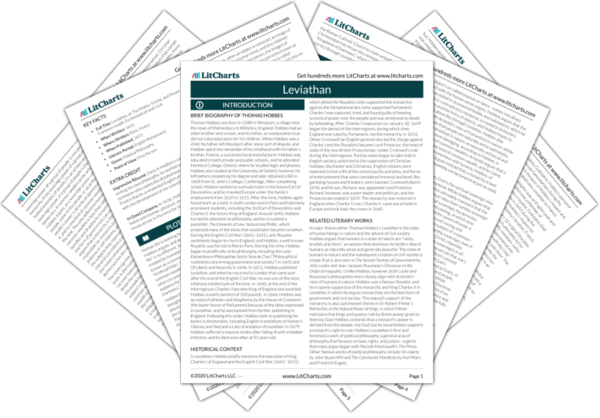Hobbes’s contention that people in nature are “solitary, poore, nasty, brutish, and short” is the most quoted line in all of
Leviathan. The question of the state of humans in nature has always been a hot topic in philosophy, and Hobbes believes people are naturally unpleasant and violent. This opinion is contrary to other philosophers, like Aristotle (384-322 BCE), John Locke (1632-1704), and Jean-Jacque Rousseau (1712-1788), who all argue humans are naturally social and helpful.
